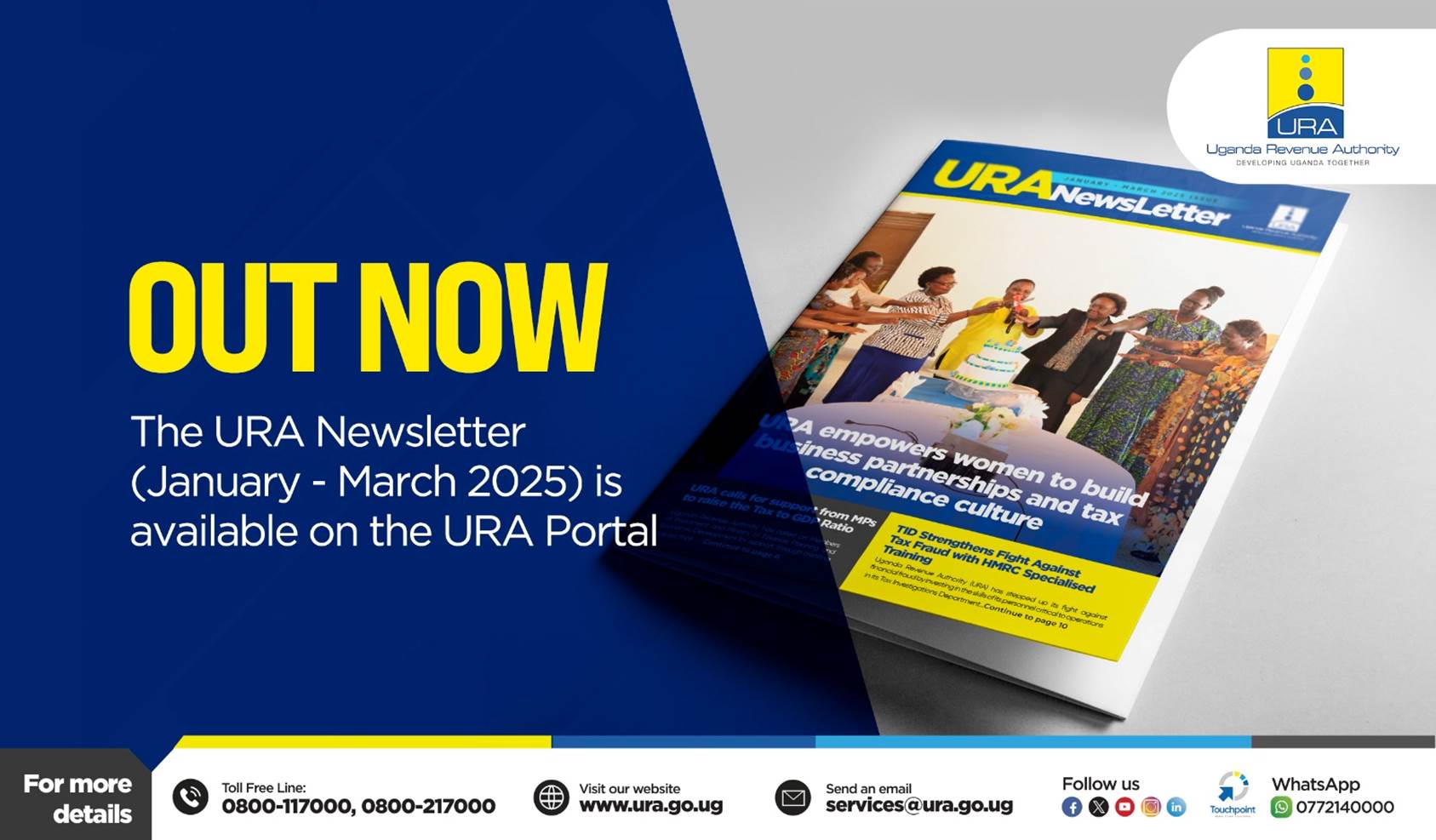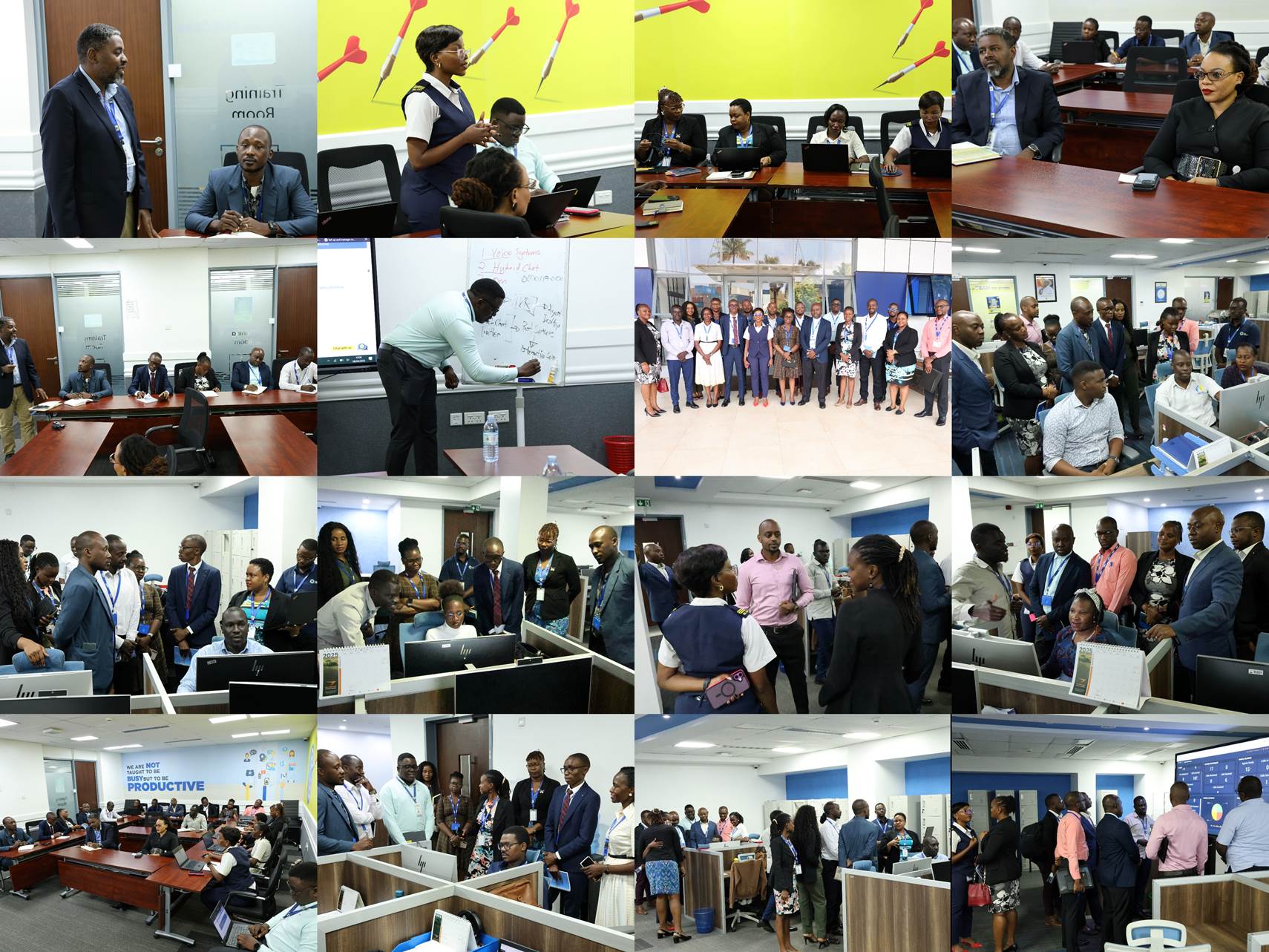By Dismas Nuwaine
Herbert Rusoke, the Commissioner of Internal Audit at the Uganda Revenue Authority (URA), has underscored the importance of continuous awareness campaigns and active stakeholder engagement in strengthening internal audit functions.
He said this would be a major step in helping sister departments embrace audit processes, allowing them to spot potential risks that could weaken their efficiency while also providing valuable insights to improve policies, systems, and operations.
Rusoke made these remarks on Wednesday while hosting an eight-member delegation from South Sudan’s Ministry of Finance and Economic Planning, in the Short Tower’s oceanic hall. The team had come to benchmark URA’s internal audit policies, procedures, and regulatory framework.
The visit followed a request from the Institute of Internal Auditors Uganda, an umbrella body for internal auditors in the country. In a letter dated 4th February 2025, the institute sought URA’s approval to facilitate the benchmarking visit as part of South Sudan’s efforts to adopt best practices in auditing.
Mupadha Reuben, the Chief Executive Officer of the Institute, praised URA’s commitment to institutional excellence, citing its efficient audit processes as a major reason why it was selected among the key entities for South Sudan’s benchmarking mission.
The Ag. Commissioner Tax Academy, Emmanuel Bichetero Asiimwe welcomed the delegation and gave a brief about URA’s training academy, emphasizing the taxman’s commitment to knowledge management and benchmark.
Rusoke provided an overview of URA’s evolution since its establishment in September 1991, highlighting key milestones such as the 2004-2005 transformation, involving the review and re-engineering of key processes, that introduced systems such as eTAX, ASYCUDA and ERP to enhance efficiency, ensure transparency and automation of URA services.
He also discussed current reform initiatives like advancement in big data analytics and utilisation, construction of the state-of-the-art three tier data centre and the roll out of the EFRIS and DTS for real time business transaction monitoring.
Leading the delegation, Matur Kudong Aduer, Director of Internal Audit at South Sudan’s Ministry of Finance and Planning, expressed gratitude to URA for its open door policy and commitment to knowledge sharing with its partners.
“As a young nation, we are continuously building our capacity in key areas of institutional efficiency, and auditing is a critical aspect. URA’s willingness to share expertise and engage in bilateral discussions is invaluable to us,” said Matur.
He commended URA’s structured and independent audit framework, which includes a well-defined charter, a comprehensive manual, a strategic plan, and an independent board committee that reviews and refines the audit strategy on a quarterly basis.
Speaking during the engagement, Njuba Julie, URA’s Assistant Commissioner for Internal Audit, stressed the importance of interdepartmental collaboration to maximize the impact of audits.
“When we identify high-risk areas, we don’t work in isolation. We engage other critical departments such as the Integrity, Compliance, and Ethics Division (ICE) and the Tax Investigations Department (TID) to ensure follow-up and resolution. This teamwork allows us to drive matters to their logical conclusion,” she explained.










